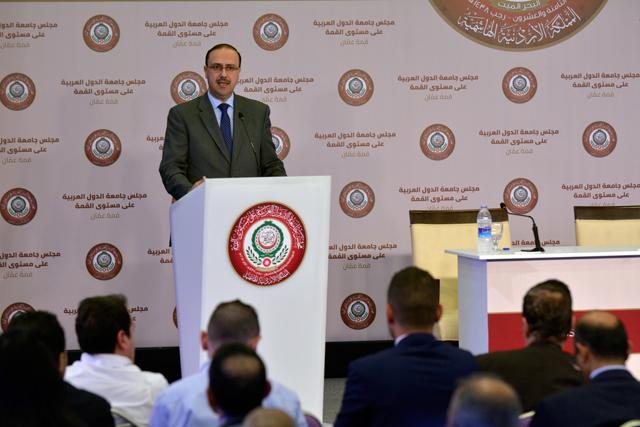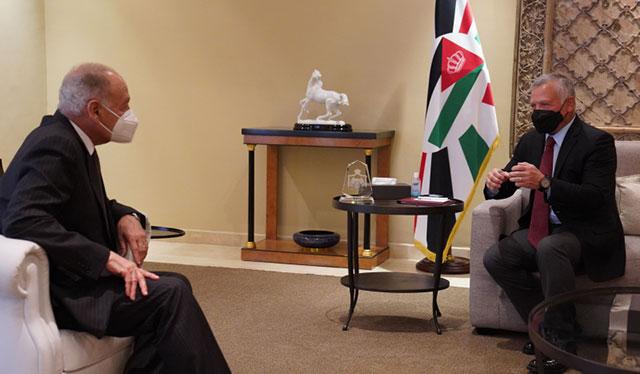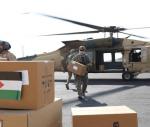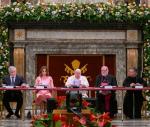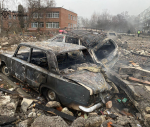You are here
Region’s ‘pressing challenges’ heard at Arab summit preparatory ministerial meeting
By Mohammad Ghazal , Laila Azzeh - Mar 27,2017 - Last updated at Mar 27,2017
DEAD SEA — With more than half of the world’s refugees being Arabs and pressing challenges facing the region’s economies and societies, Arabs need to take the lead in implementing sustainable development projects to face such challenges, the preparatory ministerial meeting at the Arab summit level heard on Sunday.
High unemployment among the Arab youth, which stands at around 29 per cent, declining economic growth rates and continued conflicts and violence in the region, are all challenges that make any developments efforts in the Arab world useless if not coupled with an “ideological awakening” and a “cultural renaissance”, Arab officials said at the opening of the Economic and Social Council’s preparatory ministerial meeting at the Arab summit.
“Arabs represent about 5 per cent of the world’s population but they account for 50 per cent of the total number of the world’s refugees,” Arab League Secretary General Ahmed Aboul Gheit said at the opening of the meeting.
“Only the Arabs will be able to heal their own wounds,” said Aboul Gheit, calling for increased aid to countries that host refugees.
The refugees’ crisis threatens the future of all Arabs, he said, with some 2.8 million Syrian school-age children not attending school.
“The last thing we want is to have a lost generation… become easy prey in the future for radical groups and advocates of violence and crime,” the secretary general said.
Extremism is the main enemy of development in the Arab world, the Arab League official argued, saying that it causes splits in societies and prevents Arabs from making advances and catching up with the rest of the world.
Only modern education and openness can help counter such ideologies, Aboul Gheit said, adding that confronting radicalism should not only be done at the military and security levels, but also in the fields of education, media and social work.
One-third Arabs are aged between 15 and 29 , while population growth in the region is at one of the highest levels of the past 50 years, said Aboul Gheit.
“According to UN estimates, the region needs to create 60 million jobs over the next decade to absorb new graduates…This is a major challenge and requires serious steps towards reform and development,” said the league’s secretary general.
According to officials at the meeting, economic development policies must be in place to address the challenges, especially given that the Arab world is one of the regions in the world that most strictly applies protectionist policies and features a myriad of non-customs related obstacles. There are also challenges when it comes to the smooth flow of passengers and commodities, said Aboul Gheit.
Addressing the meeting, Minister of Industry, Trade and Supply Yarub Qudah said that economic growth in the Middle East and North Africa was greatly affected by the crises in the region.
He underlined the “heavy” repercussions of the regional turmoil on Jordan, which he said affected development efforts and slowed down economic growth.
Qudah cited World Bank figures showing that the growth rate in the MENA region stood at 2.7 per cent in 2016, with the foreign trade performance of Arab countries falling by 1.7 per cent last year.
Moreover, the volume of inter-Arab trade did not exceed 10 per cent, said Qudah.
Highlighting the need to overcome the difficulties hampering economic integration between Arab countries, the minister noted that fostering cooperation “is the only way out of the challenges facing Arabs today”.
“We in Jordan believe that economic integration will help Arab countries overcome economic crises and push towards better economic growth,” stressed Qudah.
Intensifying Arab investments, improving inter-Arab trade volume and developing the work of the Arab Customs Union are key to building partnerships and international coalitions that contribute to strong Arab economies, according to the minister.
He also called for expediting the implementation of joint Arab ventures, while embarking on projects that enhance land, sea and railway links between Arab states.
Food security and stimulating employment in low-income Arab states are also required to improve solidarity, the minister noted.
“Jordan will continue fulfilling its obligations despite its scarce resources and inability to bear the growing burden of hosting Syrian refugees,” said Qudah.
“Nevertheless, Jordan will always be in the forefront when it comes to efforts to enhance joint Arab action and solidarity”, he pledged.
Related Articles
AMMAN — The Economic and Social Council of the Arab League on Thursday held the first preparatory meeting of the 28th ordinary Arab summit a
AMMAN — Foreign Minister Ayman Safadi on Wednesday briefed members of the Arab Peace Initiative Committee on the progress of the Arab minist
AMMAN — His Majesty King Abdullah on Wednesday received Arab League Secretary General Ahmed Aboul Gheit.The meeting covered regional and int


